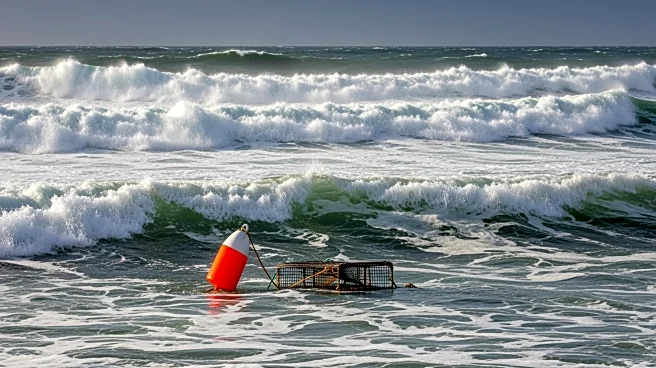What's Happening?
President Trump has threatened sanctions against countries supporting a tax on climate pollution from shipping, impacting the EU's preparations for the COP30 climate summit. Greece vetoed a passage endorsing
the International Maritime Organization's (IMO) climate measures, leading to the deletion of the reference in the EU's position. The IMO meeting was adjourned for a year, reflecting divisions within the EU and between the EU and the U.S. The disagreement highlights the challenges in achieving consensus on global climate regulations, particularly in sectors like shipping.
Why It's Important?
The disruption in the EU's COP30 preparations illustrates the geopolitical complexities of international climate negotiations. President Trump's stance could hinder efforts to establish binding global climate regulations, affecting the shipping industry's emissions reduction strategies. The situation underscores the influence of U.S. foreign policy on global environmental initiatives, potentially impacting international relations and trade. The EU's internal divisions may weaken its negotiating position at COP30, affecting its ability to lead on climate action.
What's Next?
The EU may need to navigate diplomatic challenges to reconcile internal disagreements and address external pressures from the U.S. The outcome of these negotiations could shape the future of international climate policy, particularly in the shipping sector. Stakeholders, including environmental groups and industry representatives, are likely to engage in advocacy efforts to influence the EU's position and the broader COP30 agenda. The situation may prompt discussions on alternative approaches to achieving global climate goals.
Beyond the Headlines
The incident highlights the ethical and strategic considerations in balancing national interests with global climate commitments. It raises questions about the effectiveness of international climate governance and the role of major powers in shaping environmental policy. The situation may influence public discourse on the importance of multilateral cooperation in addressing climate change, potentially driving shifts in policy and public opinion.









